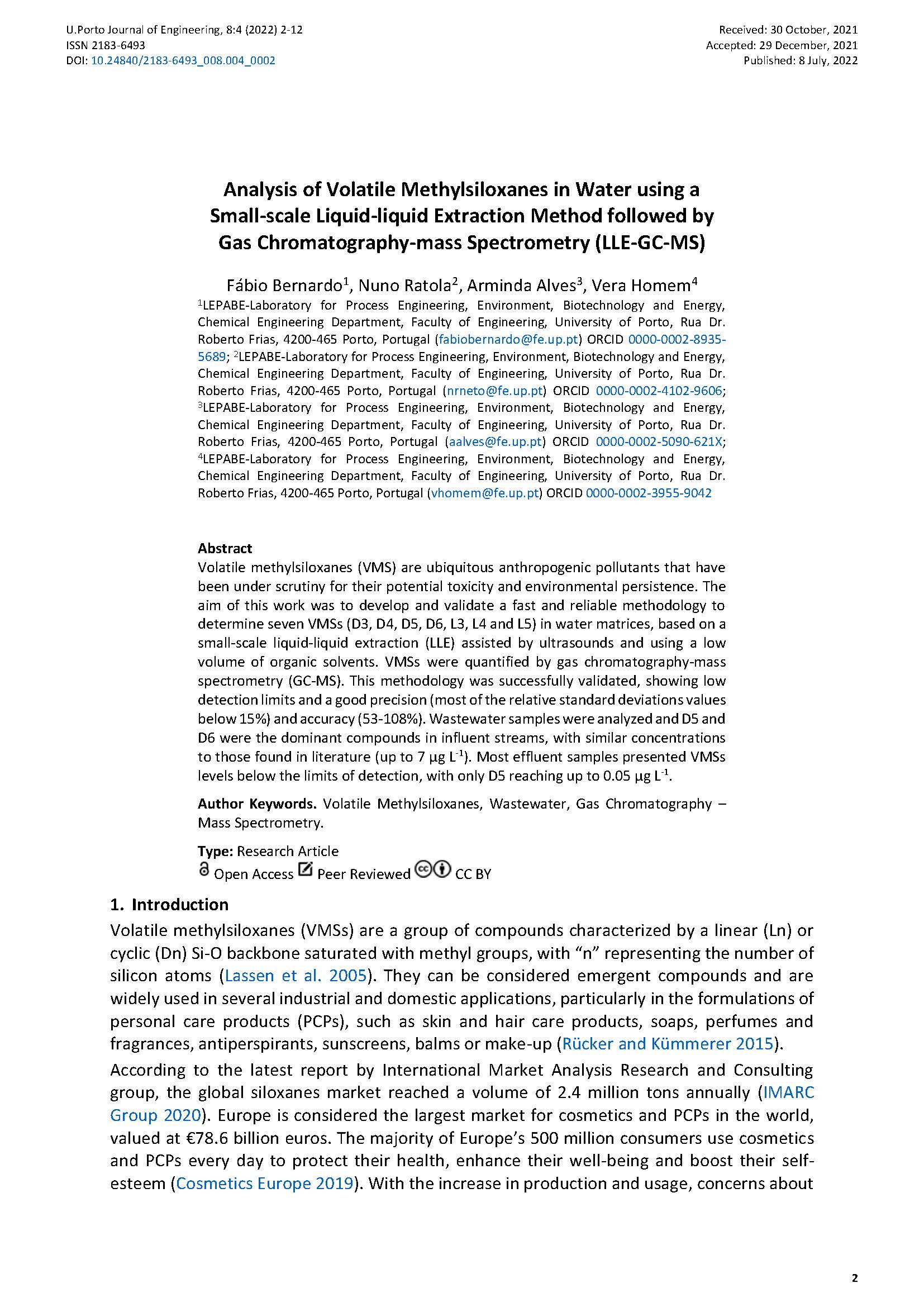Analysis of Volatile Methylsiloxanes in Water using a Small-scale Liquid-liquid Extraction Method followed by Gas Chromatography-mass Spectrometry (LLE-GC-MS)
Main Article Content
Abstract
Volatile methylsiloxanes (VMS) are ubiquitous anthropogenic pollutants that have been under scrutiny for their potential toxicity and environmental persistence. The aim of this work was to develop and validate a fast and reliable methodology to determine seven VMSs (D3, D4, D5, D6, L3, L4 and L5) in water matrices, based on a small-scale liquid-liquid extraction (LLE) assisted by ultrasounds and using a low volume of organic solvents. VMSs were quantified by gas chromatography-mass spectrometry (GC-MS). This methodology was successfully validated, showing low detection limits and a good precision (most of the relative standard deviations values below 15%) and accuracy (53-108%). Wastewater samples were analyzed and D5 and D6 were the dominant compounds in influent streams, with similar concentrations to those found in literature (up to 7 µg L-1). Most effluent samples presented VMSs levels below the limits of detection, with only D5 reaching up to 0.05 µg L-1.
Downloads
Article Details

This work is licensed under a Creative Commons Attribution 4.0 International License.
Authors who publish with this journal agree to the following terms:
- Authors retain copyright and grant the journal right of first publication with the work simultaneously licensed under a Creative Commons Attribution License that allows others to share the work with an acknowledgement of the work's authorship and initial publication in this journal.
- Authors grant the journal the rights to provide the article in all forms and media so the article can be used on the latest technology even after publication and ensure its long-term preservation.
- Authors are able to enter into separate, additional contractual arrangements for the non-exclusive distribution of the journal's published version of the work (e.g., post it to an institutional repository or publish it in a book), with an acknowledgement of its initial publication in this journal.
- Authors are permitted and encouraged to post their work online (e.g., in institutional repositories or on their website) prior to and during the submission process, as it can lead to productive exchanges, as well as earlier and greater citation of published work (See The Effect of Open Access).

